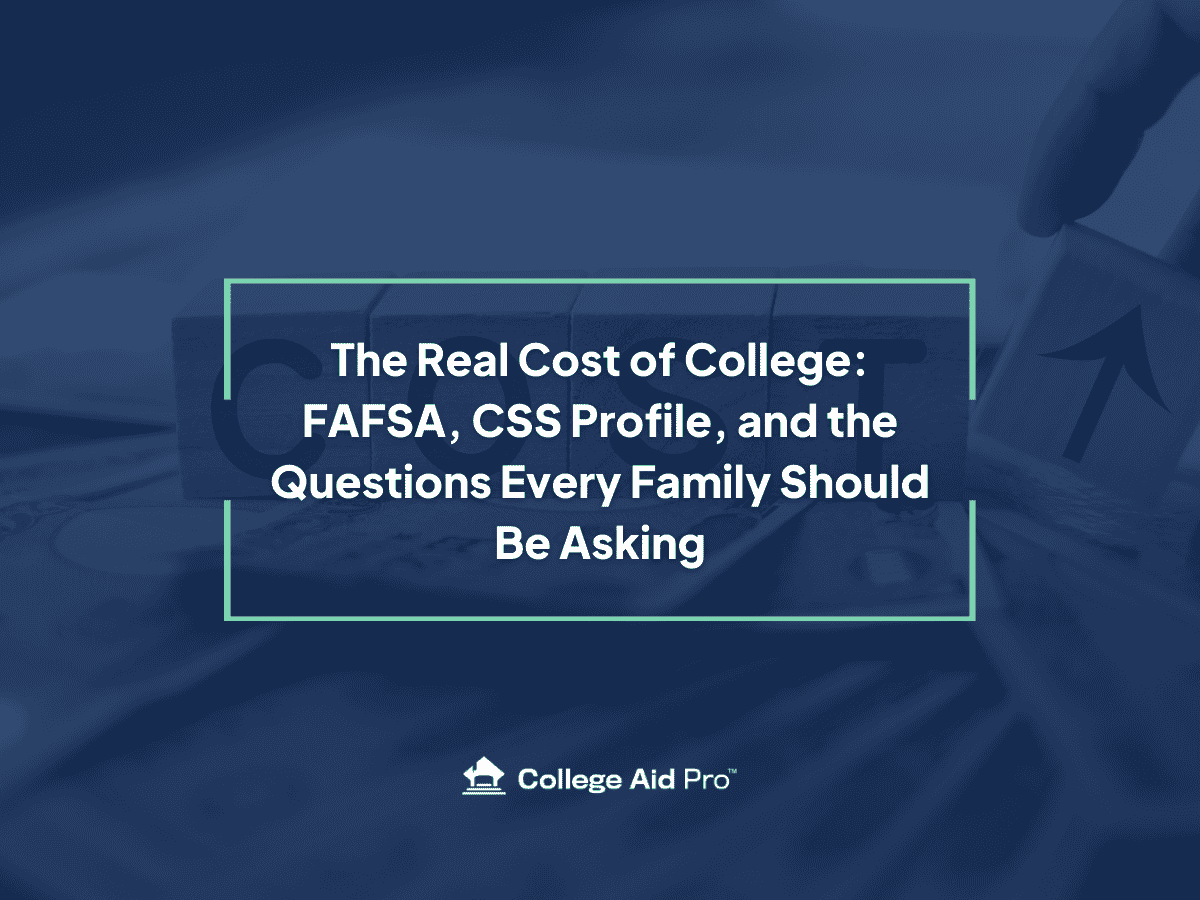The GPA-Admissions Link: How Much Does It Really Matter?
College admissions – it’s a nuanced beast if you are a high school student or parent starting to navigate the college process. There are so many things to think about, boxes to check, and places to explore. There is no standard template or precise playbook that walks you through what every school really wants to see; and every school looks at you a little differently.
With all of that, it’s important to know, you CAN do this. While colleges look at many different factors during the admission cycle, your GPA (grade point average) is one of the most important pieces of your college application. But what exactly is a “good GPA” to get into college? Read on as we’ll explore the nuances of grade point averages and their role in the college admission process.
Understanding GPA:
Grade Point Average, commonly known as GPA, is a numerical representation of a student’s academic performance. It is calculated on a scale that typically ranges from 0 to 4.0, with variations such as weighted GPAs that account for the difficulty of courses.
The 4.0 Scale:
A GPA of 4.0 is considered perfect and implies straight A’s across all courses.
Each letter grade is assigned a numerical value: A (4 points), B (3 points), C (2 points), D (1 point), and F (0 points).
Some schools may use a different scale, such as a 5.0 scale for honors or Advanced Placement (AP) courses.
Weighted vs. Unweighted GPA:
Unweighted GPA considers all classes equally.
Weighted GPA gives additional points for honors, AP, or IB (International Baccalaureate) courses, reflecting the increased difficulty of these classes.
What is a Good GPA?
The definition of a “good” GPA can vary depending on the college or university you are applying to, the competitiveness of the program, and the overall applicant pool. In general, a GPA above 3.0 is considered acceptable, but highly selective and selective institutions expect a much higher.
Highly Selective Colleges:
For Ivy League and other highly selective schools, a GPA of 3.7 or higher is often the baseline.
Keep in mind that extracurricular activities, standardized test scores, and recommendation letters also play a significant role in the admission process.
Selective Colleges:
Colleges with moderately competitive admissions may accept students with GPAs in the range of 3.0 to 3.5.
However, other factors like a compelling personal statement or unique achievements can boost your chances.
Community Colleges and Open Admission Institutions:
Community colleges and institutions with open admissions policies may accept students with GPAs below 3.0.
These institutions often prioritize providing access to education for a broad range of students.
How Important is GPA in the Admission Process?
While your grade point average is undeniably an essential component of your college application, it’s not the sole deciding factor. Most admissions offices use a holistic view of each applicant, taking into account various aspects of their academic and extracurricular achievements.
Holistic Admissions:
A holistic admissions strategy evaluates not just the qualitative grade point average and test scores of a student, but also looks at a student’s unique experiences. The holistic admissions process, focuses on the WHOLE person. Other important factors considered are:
- your personal statement
- supplemental essays
- extracurricular involvement
- leadership roles
- student potential
- recommendation letters
With this approach schools reflect on an applicant’s academic preparedness, their potential contributions to the incoming class, and their likelihood of success both in academia and future professional endeavors based on who they are and what they’ve contributed, not just how well they did academically. A compelling personal story or unique accomplishment can outweigh slightly lower grades.
Trends and Improvements:
Was freshman year a challenge for you or did you not take your grades as seriously as you should have? It does affect your GPA. Remember, your grade point average is a culmination of all your grades from your entire high school career.
However, admissions offices don’t usually look at your GPA in a vacuum. They look at how you did each year in high school. If you made adjustments and show improvements over the years, and took a challenging course load that you did well in, it can demonstrate your dedication and ability to handle academic challenges.
Differences Across the Board
Colleges know that not every school calculates grade point averages the same. Like we said earlier, some schools use unweighted GPAs while others use a weighted version. And there are different grade point scales from 4.0 to 5.0 all the way to 10.0. So how do colleges compare a student that has a 7.5 to a student with a 3.8?
Most colleges have their own GPA conversion system. For admissions, many colleges will recalculate your GPA so there is consistency/equity across applicants based on institutional standards and may not include all high school coursework or weights.
Tips for Enhancing Your College Application:
Extracurricular Activities:
Engage in meaningful extracurricular activities that demonstrate leadership, passion, and commitment. Don’t just join a club because you think it will “look good on your college application.” Do it because you are interested or curious. Colleges appreciate a well-rounded individual, but they can also tell when you are just padding a resume.
Standardized Test Scores:
Perform well on standardized tests like the SAT or ACT. Some colleges may weigh these scores more heavily if your high school grades aren’t exceptionally high.
Letters of Recommendation:
Request strong letters of recommendation from teachers who know you well and can speak to your academic abilities and character. Colleges want students who are good people, not just someone who earned high academic marks in school, to fill their next class of freshman.
Personal Statement:
Craft a compelling personal statement that highlights your unique qualities, experiences, and aspirations. This is your chance to actually use your “voice” and tell your story. Put your unique spin on your essay so the admissions office sees you and not just your grades and academic accomplishments when they look at your application.
In conclusion, while a good GPA is crucial for college admissions, it is not the sole determinant of your acceptance into a particular institution. The admissions process is multifaceted, taking into account various aspects of your academic and personal life. Strive for academic excellence, but also focus on building a well-rounded application that showcases your unique strengths and qualities. Remember, each college has its own set of criteria, so research the requirements of your target institutions and tailor your application accordingly.



